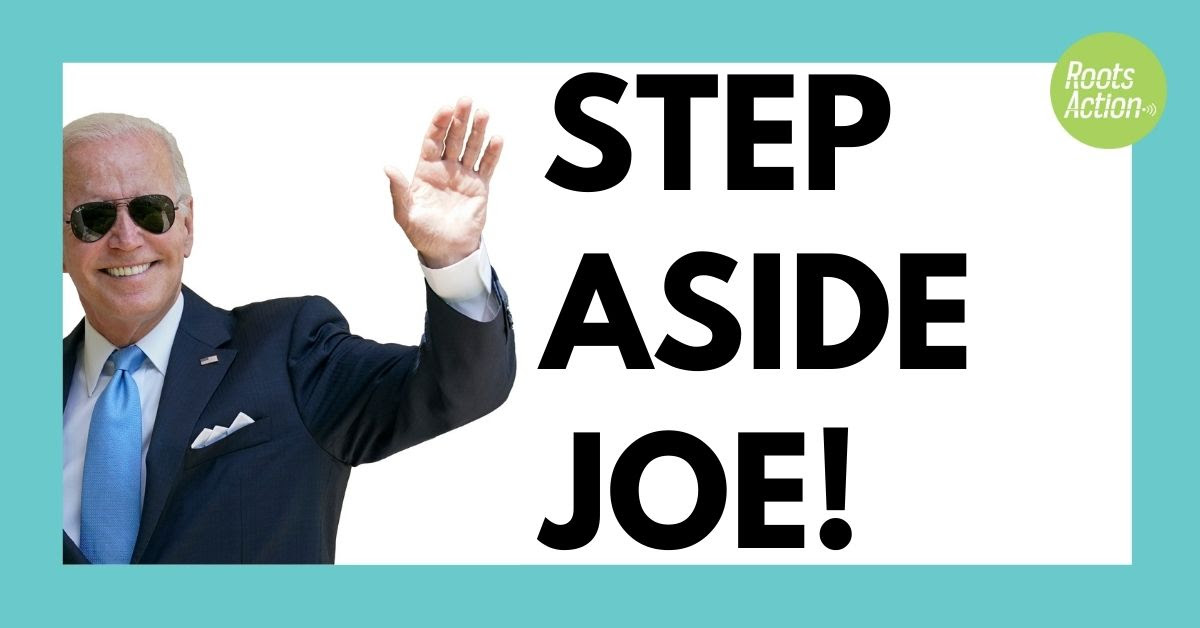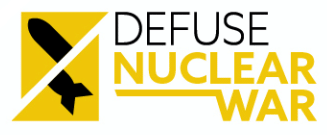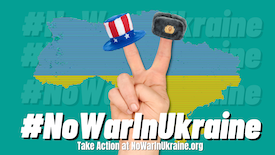Dear Senator/Member of Congress:
March 6, 2023
One year ago, Russian President Vladimir Putin launched an all-out invasion on independent, democratic, non-nuclear Ukraine, killing thousands, displacing millions, and creating economic, social, and political disruption on a global scale. His implied threats of nuclear weapons use against any who would interfere have also raised the specter of a nuclear conflict in ways not seen in the post-Cold War era.
On Feb. 21, Putin also announced that Russia will “suspend” implementation of the last remaining bilateral treaty capping the world's two largest nuclear arsenals, the 2010 U.S.-Russian New Strategic Arms Reduction Treaty (New START). Importantly, Russia says it intends to continue to respect the central limits set by the treaty, which caps U.S. and Russian strategic nuclear arsenals at 1,550 warheads deployed on 700 ballistic missiles and bombers.
U.S. President Joe Biden responded with prudence and pragmatism by calling Putin's announcement “a big mistake.” For months, the administration has persistently sought to resume New START on-site inspections, which were suspended in early 2020 due to the pandemic.
Biden has also made it clear that his administration stands “ready to expeditiously negotiate a new arms control framework to replace New START when it expires in 2026. But negotiation requires a willing partner operating in good faith.”
If the two sides do not succeed in negotiating new arrangements to supersede New START, there will be no limits on the size or the composition of the world’s two largest nuclear arsenals for the first time since 1972. Without such constraints, both Moscow and Washington could
quickly double the size of their nuclear arsenals by uploading additional warheads on ballistic missiles.
We write today to urge you to support the Biden administration’s ongoing efforts to engage Russia in talks on resuming all treaty activities, including mutual on-site inspections and biannual data exchanges, and on crafting a new nuclear arms control framework to supersede New START. At the very least, the two countries should agree to maintain New START’s central limits until such an arrangement is concluded.
We also encourage you to resist the efforts of some members of Congress who, in the wake of Putin’s announcement, have called for the United States to step away from New START and to prepare to increase the size of the U.S. nuclear arsenal. Some have suggested that the United States should no longer engage with Russian leaders on risk reduction and arms control measures. Such an approach would severely undermine U.S. and allied security.
U.S. action to stop implementation or to withdraw from New START would not advance U.S. interests nor increase our leverage vis-à-vis Russia. Instead, such an action would lend credence to Putin’s cynical disinformation campaign about who is at fault for the breakdown of nuclear arms control; further escalate tensions and make an already dangerous Russia harder to manage; and undoubtedly encourage China to build up its nuclear arsenal.
A world without effective nuclear arms control is much more dangerous and unstable. We must act now to guard against the further degradation of nuclear arms control and prevent an unconstrained, costly global nuclear arms race that has no winner.
Sincerely,
Thomas M. Countryman, Chair of the Board of the Arms Control Association and former Assistant Secretary of State for International Security and Nonproliferation from 2011 to 2017
Daryl G. Kimball, Executive Director, Arms Control Association
Sean Meyer, Co-Founder/Strategic Advisor, Back from the Brink Coalition
Peter Wilk, MD, Administrative Chair, Back from the Brink Coalition
James Acton, Co-director, Nuclear Policy Program, Carnegie Endowment for International Peace*
Joseph Carson, President, Affiliation of Christian Engineers
John Tierney, Executive Director, Center for Arms Control and Non-Proliferation; and Council for a Livable World
Joni Arends, Executive Director, Concerned Citizens for Nuclear Safety
Andrew Albertson, Executive Director, Foreign Policy for America
Johanna Chao Kreilick, President of the Union of Concerned Scientists
Allen Hester, Legislative Representative, Nuclear Disarmament & Pentagon Spending, Friends Committee on National Legislation
David A. Koplow, Professor, Georgetown University Law Center* Derek Johnson, Managing Partner, Global Zero
Robert Goldston, Professor of Astrophysical Sciences at Princeton University* and former director of the Energy Department’s Princeton Plasma Physics Laboratory
Dr. Comfort Ero, President and CEO, and Olga Oliker, Director Europe and Central Asia, International Crisis Group
Ira Helfand, M.D., Immediate Past President, International Physicians for the Prevention of Nuclear War
Frederick Lamb, Research Professor of Physics and Astronomy, University of Illinois*
Ariana Smith, Executive Director, and Elizabeth Shafer, J.D., Board Member, Lawyers' Committee on Nuclear Policy
Terri S. Lodge, former Senior Advisor in the Bureau of Legislative Affairs, U.S. Department of State
Jay Coghlan, Executive Director, Nuclear Watch New Mexico
Joan Rohlfing, President and Chief Operating Officer, Nuclear Threat Initiative
Tanvi Kardile, Coordinator, Oak Ridge Environmental Peace Alliance
Kevin Martin, President, Peace Action
Jeff Carter, Executive Director, Physicians for Social Responsibility
Robert F. Dodge, M.D., Board President, Physicians for Social Responsibility-Los Angeles
Amb. Thomas Pickering, former Under Secretary of State for Political Affairs, and former U.S. ambassador to the United Nations, the Russian Federation, India, Israel, and Jordan
Steven Pifer, Ambassador (ret.), former Foreign Service officer, former U.S. Ambassador to Ukraine (1998-2000), and Special Assistant to the President and Senior Director for Russia, Ukraine and Eurasia on the National Security Council (1996-1997).
Stewart Prager, Professor of Astrophysical Sciences, Princeton University* and Chair, Steering Committee, Physicists Coalition for Nuclear Threat Reduction
Emma Belcher, President Ploughshares Fund
William D. Hartung, Senior Research Fellow, Quincy Institute for Responsible Statecraft
John C. Wester, Archbishop, Catholic Archdiocese of Santa Fe
David Swanson, Campaign Coordinator, RootsAction
Greg Thielmann, former Foreign Service Officer, former Director of the Strategic, Proliferation and Military Affairs Office in the Department of State’s Bureau of Intelligence and Research, and former State Department advisor to the U.S. Delegation at the Geneva INF arms control negotiations
Marylia Kelley, Executive Director, Tri-Valley CAREs (Communities Against a Radioactive Environment), Livermore, California
Tara Drozdenko, Director, Global Security Program, Union of Concerned Scientists Sara Haghdoosti, Executive Director, and Stephen Miles, President, Win Without War
Frank N. von Hippel, Senior Research Physicist and Professor of Public and International Affairs emeritus, Program on Science and Global Security, Princeton University*
John Woodworth, Ambassador and Deputy Negotiator of the Intermediate-Range Nuclear Forces (INF) Treaty, Office of the Secretary of Defense
*Affiliation for identification purposes only.
Published by Arms Control Association.










